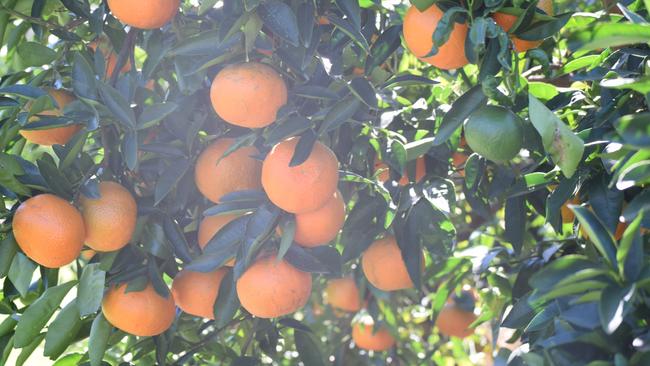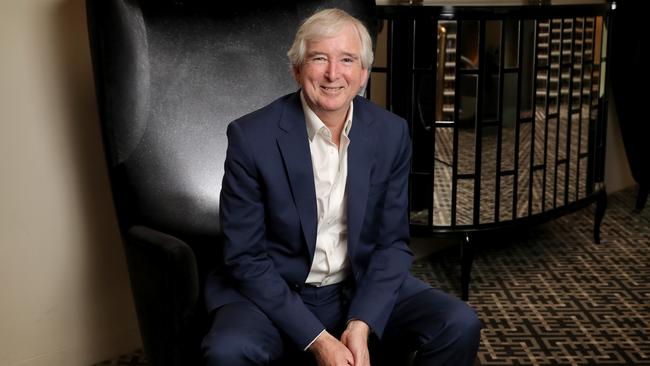Consortium to plough $200m into Costa Group
A US agribusiness private equity giant is leading a consortium that plans to back the expansion of Australia’s largest fruit and vegetable company.

A consortium headed by US agribusiness private equity giant Paine Schwartz Partners (PSP) plans to invest more than $200m in Costa Group to expand the local and international operations of Australia’s largest fruit and vegetable company.
In an interview to mark the privatisation of Costa and its delisting from the stock exchange, PSP chief executive Kevin Schwartz said the consortium was excited about Costa’s unique market position.
PSP first invested in Costa in 2011 when the company was less than a quarter of the size it is today.
The business was floated on the ASX in 2015 and PSP sold its shares in the public company in 2017, before returning to the share register in 2022 and spearheading a takeover bid last year.
“Our focus at PSP is on growth. That is how value is created. We invested $300m in capital initially in Costa – $100m to acquire our 50 per cent stake in 2011 and $200m in growth capital after that,” Mr Schwartz said.
“Now we have a much deeper bench and a greater amount of firepower with our consortium partners. Costa is bigger, our ambition is bigger, and we intend to grow the business domestically and abroad. There is a lot we can do in north Africa and Asia and other international platforms.”

While he declined to give a specific number, asked how the scale of the new investment would compare to the past, he replied: “I would expect the magnitude to exceed that.”
Funding for the $1.5bn takeover of Costa by the consortium of PSP, Californian berry group Driscoll’s and the British Columbian Investment Management Corp is being split equally between the partners.
Each consortium investor will have representation on the new board, but the firm will retain an independent chairman.
PSP and Costa have long had a relationship with Driscoll’s, while BCI is an investor in PSP’s suite of agribusiness funds and a long-term investor in food and agriculture.
Mr Schwartz said Costa was at the leading edge of technology deployed in all phases of the development of berries, as well as packaging, food safety and efficiencies in the supply chain.
“We will also continue to invest in those areas. We see opportunity up and down the value chain,” Mr Schwartz said.
“We’ll regularly review opportunities, but the focus of our value creation strategy at Costa will be its existing categories and assets.”
PSP’s Costa investment is being made from its sixth fund, worth $US1.7bn, which last year backed another public to private transaction in the US: a firm spun out of Dow Chemical called AgroFresh.
“There are some bilateral beneficial synergy opportunities with Costa and some of our portfolio companies like AgroFresh. That company has multiple technologies which preserve freshness in fresh produce, it is the leader in post-harvest solutions for fresh produce globally,” Mr Schwartz said.
“There are already some products that they sell that are being used by Costa. As we scale and introduce new technologies, that’s one example of an opportunity.”

He said PSP was also an investor in another global business called BLOOM Fresh, one of the leading breeders of table grape varieties, which was formed in 2023 through the combination of SNFL and IFG.
“They are the newer, elite varieties, particularly the red flesh varieties that we are in dialogue with BLOOM to bring to Australia. So there are opportunities like that,” he said. Costa grows grapes in Australia, but many of its varieties are older.
Mr Schwartz ruled out cost cuts at Costa.
“There are undoubtedly opportunities to reduce public company costs but we are not focused on a cost-cutting strategy, we are looking to invest in growth,” he said.
He rejected claims by some Costa shareholders that the takeover undervalued the firm.
“The numbers speak for themselves. The scheme price delivered a 43 per cent premium relative to the price at the time that we did our block trade to acquire 14 per cent of Costa in October 2022. We saw this as a very fair and full value for public shareholders,” Mr Schwartz said, noting more than 98 per cent of Costa shareholders voted in favour of the deal.
Last September the consortium cut more than $100m from an original $3.50 per share offer made in May, lowering the bid price to $3.20 after two months of due diligence, to account for Costa’s weaker profit outlook and a $30m hit from adverse weather conditions.
“The numbers matter,” Mr Schwartz said. “The company underperformed expectations and that financial performance underpinned our investment, as well as financing for the transaction. So the price needed to be adjusted accordingly and it was.”
Costa chairman Neil Chatfield told a meeting of shareholders to approve the deal last month that he was sympathetic to the criticism from retail shareholders.
But he stressed the final offer of $3.20 was within the valuation range from independent expert Kroll, which valued the shares between $2.62 and $3.28. The shares were as high as $6.90 in late 2018.

Mr Schwartz said there was more value in Costa in private ownership. “For what we saw as idiosyncratic agricultural volatility and weather events, it seems like the markets lost faith in Costa’s ability to consistently deliver the type of earnings growth and profitability and cash flow that it had for years,” he said.
“It is the same group of assets, largely the same team leading the company, just with more scale. So we thought that under our private ownership, where that idiosyncratic volatility matters less – we are looking at a five to 10-year time horizon for the investment – it made sense to dive back in and get behind the existing leadership team to provide capital for ongoing growth, which is what we intend to do.”
Harry Debney has been interim CEO of Costa since September 2022 after previously serving as CEO for a decade. Former chief operating officer Marc Werner was promoted to the deputy CEO role in July and is viewed by analysts as a likely successor to Mr Debney.
Mr Schwartz said PSP did not sell its Costa shares in 2017 because of a loss of faith in the business, but because its investment funds had “a finite time horizon”.
“That initial investment was out of our third investment fund. We are now investing from our sixth fund. This time around we have deeper pockets and partners,” he said, noting it was “too early to tell” if Costa would ever return to the ASX when PSP eventually moves to exit.
Mr Schwartz, who was previously a director of Costa, has had a long association with the Costa family, which started the Costa business. Family patriarch Frank Costa passed away in May 2021.
He said PSP and its partners wanted to honour the Costa family legacy in the business.
“About 75 per cent of the investments we make are in family or founder-owned businesses. Costa is one of the most successful and enjoyable partnerships we have ever had with a family. Frank, Rob, Anthony are all wonderful folks that we worked with very closely. But we worked most closely with Frank,” Mr Schwartz said.
“We think the world of Frank and were saddened by his passing. He was a great individual, a great leader, a great family man. There is something to the Costa culture that we really value and there is a personal enjoyment for me to be back in Costa, back on the ground in Australia, interacting with folks we count as friends.”





